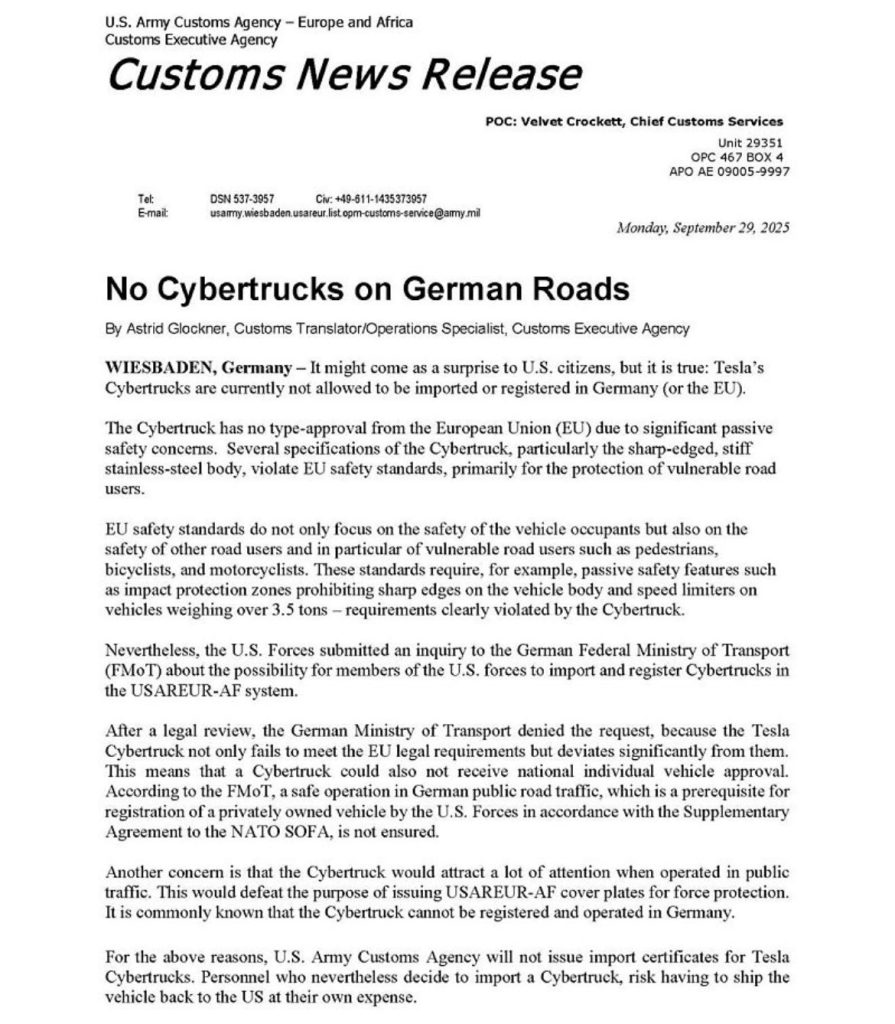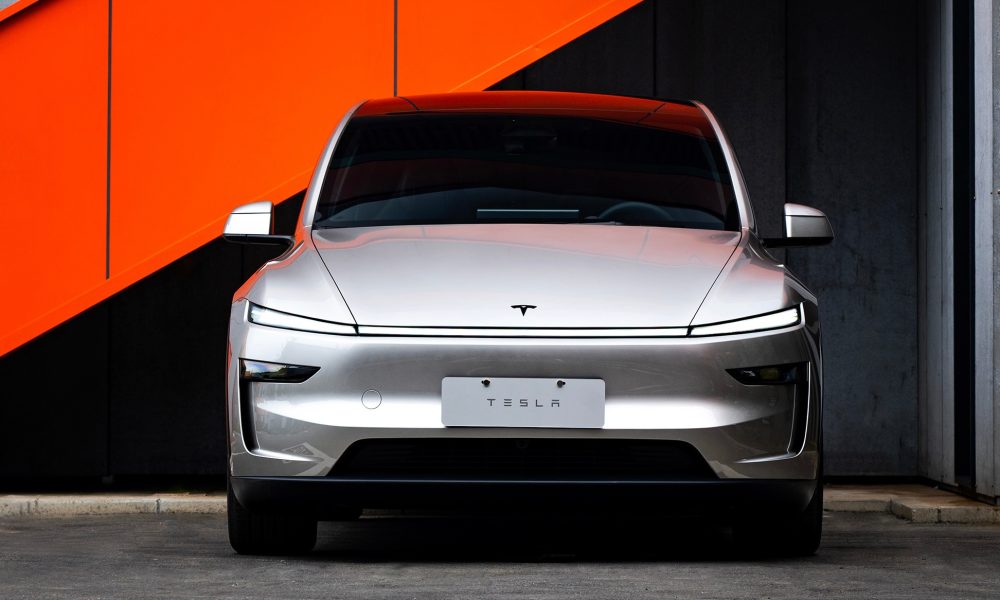The U.S. Army Customs Agency news release has stated that the Tesla Cybertruck cannot be imported or registered in Germany or the wider European Union. This was because the vehicle had failed to obtain EU type-approval due to passive safety violations, with regulators citing risks tied to its stainless-steel body and design.
The ruling effectively bars U.S. Forces personnel from legally operating the vehicle on German roads.
As per the news release, U.S. Forces submitted an inquiry to the German Federal Ministry of Transport (FMoT) about the possibility for members to import and register the all-electric pickup truck in the USAREUR-AF system. Following a legal review, the “German Ministry of Transport denied the request, because the Tesla Cybertruck not only fails to meet the EU legal requirements but deviates significantly from them.”
Officials argued that the vehicle falls far short of EU requirements, particularly those aimed at protecting pedestrians, cyclists, and other vulnerable road users. The Cybertruck’s sharp edges and weight classification also reportedly exceed thresholds that mandate impact protection zones and additional safety features.

“The Cybertruck has no type-approval from the European Union (EU) due to significant passive safety concerns. Several specifications of the Cybertruck, particularly the sharp-edged, stiff stainless-steel body, violate EU safety standards, primarily for the protection of vulnerable road users.
“EU safety standards do not only focus on the safety of the vehicle occupants but also on the safety of other road users and in particular of vulnerable road users such as pedestrians, bicyclists, and motorcyclists. These standards require, for example, passive safety features such as impact protection zones prohibiting sharp edges on the vehicle body and speed limiters on vehicles weighing over 3.5 tons – requirements clearly violated by the Cybertruck,” the release read.
Officials also shared concerns about the Cybertruck’s eye-catching design, which might reportedly put drivers in danger. “Another concern is that the Cybertruck would attract a lot of attention when operated in public traffic. This would defeat the purpose of issuing USAREUR-AF cover plates for force protection,” the release noted.
With these decisions in mind, personnel who opt to import Cybertrucks into Germany could end up shipping their vehicles back to the United States at their own expense.

